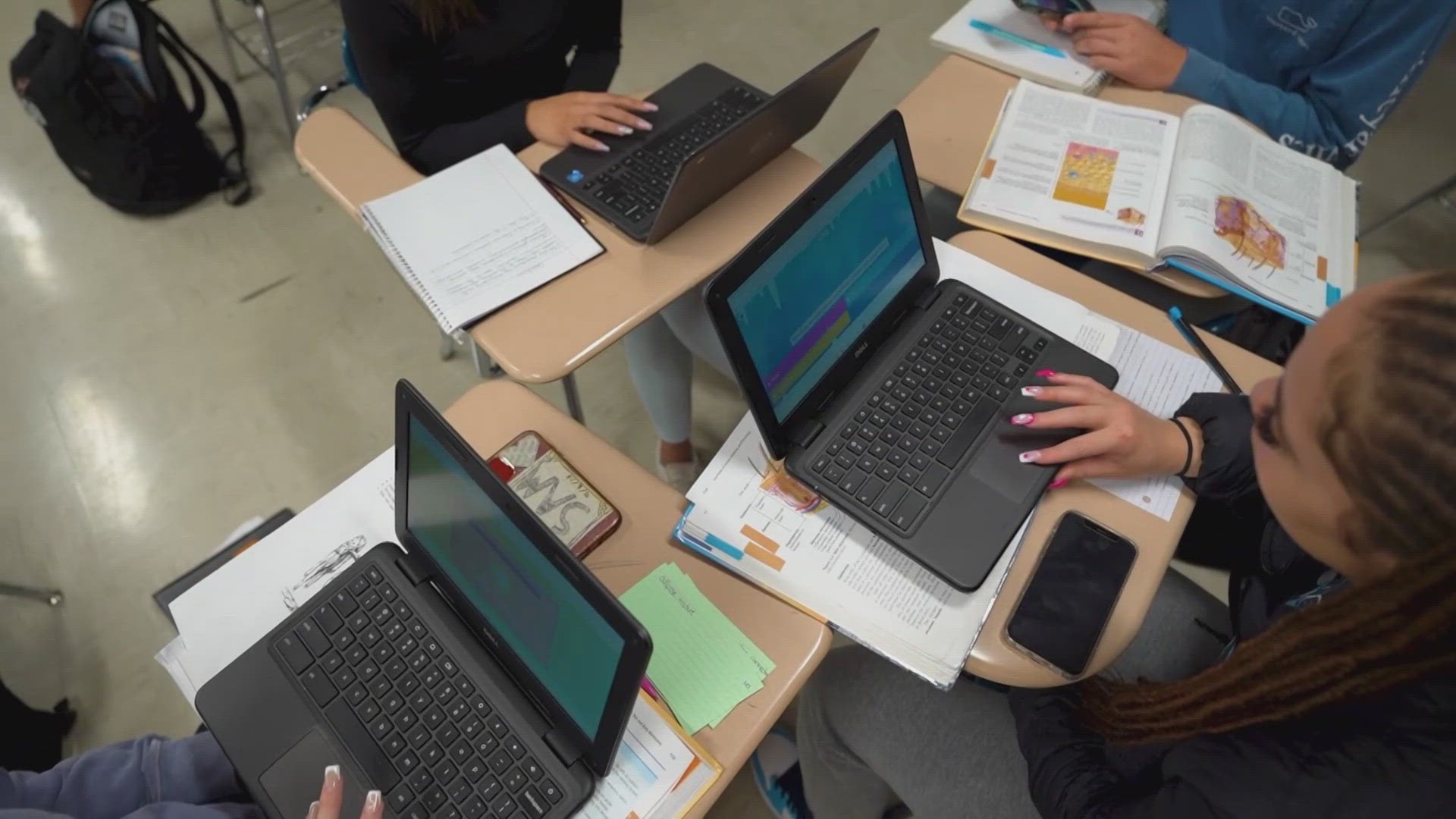KNOXVILLE, Tenn. — KUB is providing free internet access to eligible student households across the Knoxville area, while its fiber internet infrastructure continues to expand.
The utility company said it launched the ConnectED internet assistance program, which provides participants with $80 per month to cover the cost of KUB Fiber internet, as well as an in-home router and other services. The gigabit internet service provides speeds that compete with most other major internet service providers.
KUB's ConnectED program provides internet access with funding from Knoxville and Knox County. It is available in some Knoxville-area communities, listed below.
- Rocky Hill
- Parkridge
- Halls
- Fourth and Gill
- House Mountain
- South Knoxville
- West Hills
To be eligible for the program, households must live within KUB's electric service area, inside Knoxville or Knox County. KUB Fiber must also be available in their area, and the households must have an income of either 200% below the federal poverty guidelines or 80% of the area median income.
Households also need to have a child enrolled in a Knox County public school, between kindergarten and 12th grade.
Participants will also be asked to share contact information, their KUB service address, proof of school enrollment and proof of income eligibility such as approval for SNAP, Medicaid or federal housing assistance.
"I have lessons that are online, that kids use their computers," said Dave Gorman, a seventh-grade science teacher at Cedar Bluff Middle School. "Covid changed so many things in terms of how we use and how we rely on technology,"
In 2020, Knox County leaders voted for every student in the district to have access to a personal Chromebook laptop.
"It created a need for students to have their own technology that middle and high schools could take home," said Gorman.
According to leaders, it also exposed the needs of students who don't have reliable Wi-FI at home.
"We saw that was needed, especially in, you know, underrepresented, underserved areas, especially in a lot of our rural areas here," KUB said. "We saw that was needed, especially in, you know, underrepresented, underserved areas, especially in a lot of our rural areas here."
Teachers like Gorman want to remind parents that with more access to the internet also comes more responsibility.
"But we also need to make sure that when they're at home, that they're being monitored," said Gorman.

